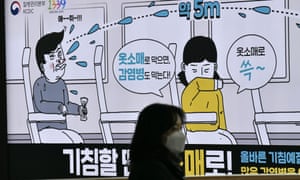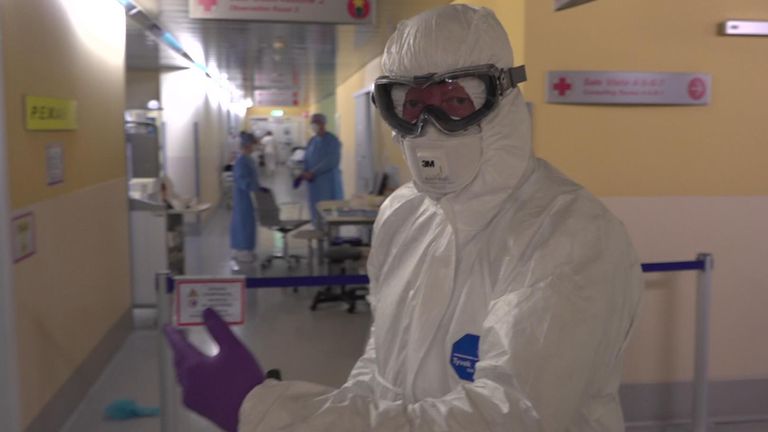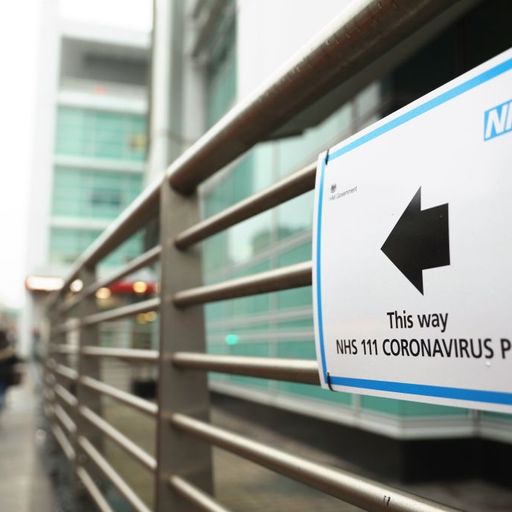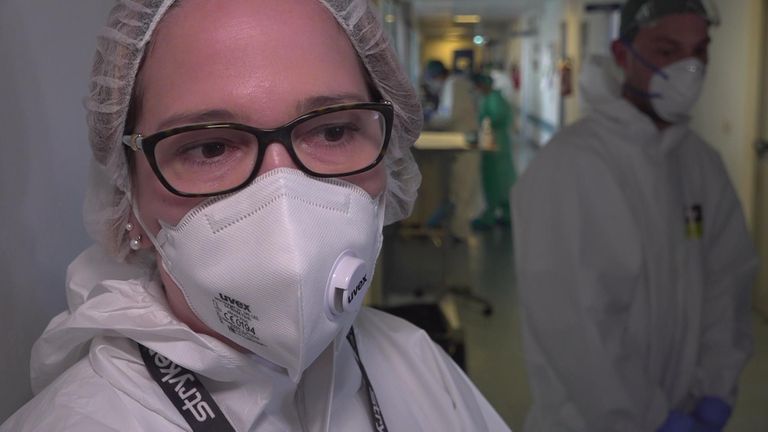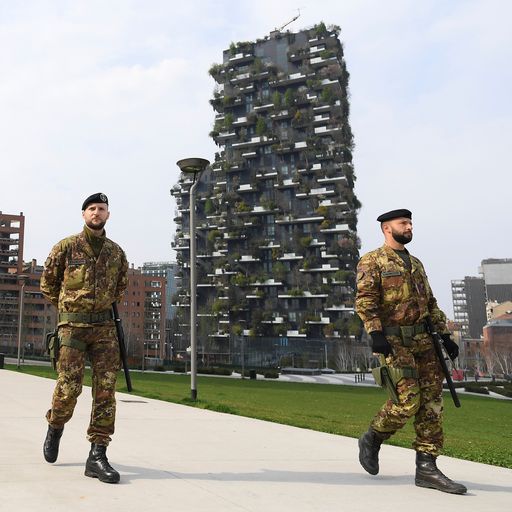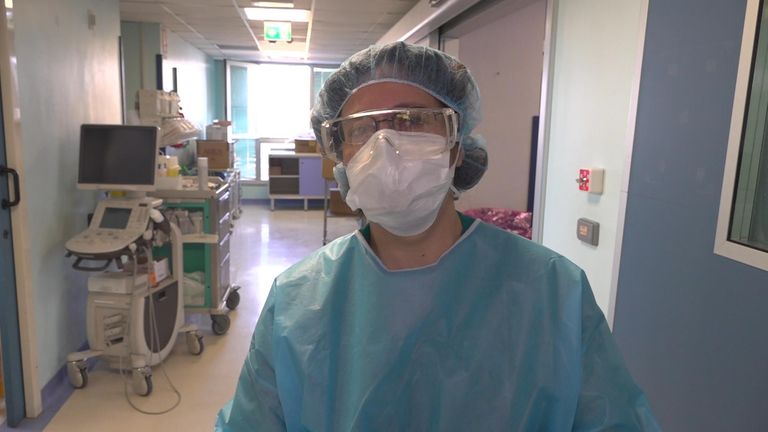Coronavirus: how Asian countries acted while the west dithered | World news
www.theguardian.com

The first coronavirus cases in Taiwan and Italy came only 10 days apart.
On Sunday Taiwan, which has deep cultural and economic ties to China, has recorded just 153 cases and two deaths. Italy has more than 47,000 cases and 4,032 people have died.
Italy’s epidemic is currently the most devastating in the world; its death toll overtook China’s last week and on Saturday officials in Lombardy said deaths in that region had jumped by 546 in one day to 3,095. The pattern of an exponential explosion in cases, after weeks of government inaction in the face of impending crisis, has been repeated across western countries from Spain, France and Germany, to the UK and the US.
Leaders are now taking measures that would have been unthinkable weeks or even days ago, locking down tens of millions of people from Berlin to Madrid and San Francisco and pouring billions into rescue plans.
But had they acted a few weeks earlier, they could perhaps have avoided much of the human tragedy and economic catastrophe they now face. Taiwan, Hong Kong and Singapore, which had their first confirmed cases before Europe, but acted early and fast, still have deaths in single digits and, at most, a few hundred cases.
Taiwan, helped perhaps by having an epidemiologist as vice-president, started tracing passengers from Wuhan as soon as China warned of a new type of pneumonia in the city last December, before Covid-19 was identified. Social distancing, ramped-up testing and contact-tracing followed soon after.
Most western countries did little, apart from developing a modest testing capacity – apparently gambling on the disease being contained elsewhere, as previous threatened epidemics, including Sars in 2002-03 and more recently Ebola and Mers, had been.
“The challenge faced by government is whether and when to act on a health threat. If you act swiftly and the outbreak isn’t as bad as feared, then government gets criticised for overreacting. If you adopt a wait-and-see approach and move too slowly, then government gets criticised for underreacting,” says Steve Taylor, professor at the University of British Columbia and author of The Psychology of Pandemics.
“In hindsight, the UK might have been better off if they had adopted the same practices as Taiwan. But if the outbreak had fizzled, the government would have been criticised for overreacting. Taiwan gambled successfully on the assumption that Covid-19 would spread widely and rapidly.”
Other countries that initially allowed the disease to spread – most notably South Korea, which at one point was the country with the most infections outside China – managed to partially tame the outbreak through rigorous testing and tracing contacts of those infected. Subsequently, new infections levelled off, even as they spiralled across Europe.
Facebook Twitter Pinterest
A woman walks past a poster in Seoul, South Korea, showing preventative measures against infectious diseases. Photograph: Jung Yeon-Je/AFP via Getty Images
“I do think we can learn from past mistakes, and South Korea is a really strong example of that if you look at the amount of testing they have been doing, and how fast they were able to mobilise,” said Ashley Arabasadi, chair emeritus of the Global Health Security Agenda Consortium.
“It might be unfair to criticise governments that haven’t had to deal with something like this in over 100 years, while South Korea have had more recent experience.”
South Korea’s sense of urgency was driven in part by recent firsthand experience of how virulent coronaviruses can be due to an outbreak of Mers in 2015 and the 2002-03 Sars epidemic, which also affected Taiwan, Hong Kong and others in the region.
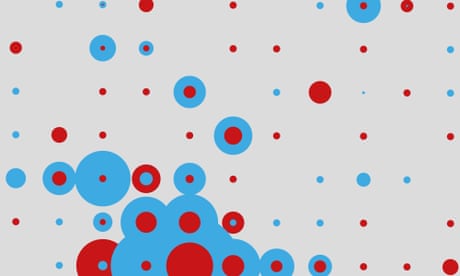
Those diseases barely touched the west, being contained, like others including Ebola, near the site of their outbreak, potentially leaving the west’s leaders too complacent.
“We should have used that time [in January and February] more wisely, but, to be fair, everyone was dealing with an unknown,” said Laura Spinney, a science journalist whose latest book is Pale Rider: The Spanish Flu of 1918 and How it Changed the World. Authorities didn’t want to cause panic initially, she said, but then the balance shifted so “the biggest danger was not panic – it was complacency, and too many governments weren’t moving”.
There is a chance some politicians in the US and Europe, lulled by decades of stability in their countries after the second world war – decades in which they have waged war overseas but never seen life totally upended at home – simply didn’t want to recognise the threat.
“People are not terribly good at estimating risk. Wishful thinking, overestimation of resources, and other factors can cloud our judgment of risk. This may have happened during the current pandemic,” Taylor said.
It’s important, however, that whenever the world does successfully develop a vaccine, or a cure for Covid-19, the tragic lessons of these early crises are not forgotten. Governments need to invest in healthcare systems, so that when the next pandemic arrives, we are better prepared.
“You see a system of panic and response that we go into. Once that initial panic dies down, you get complacency, a lack of understanding that these novel viruses happen regularly and will happen with greater frequency as we become more interconnected,” said Arabasadi. “That’s why there needs to be a greater investment in health and health systems.”
www.theguardian.com

The first coronavirus cases in Taiwan and Italy came only 10 days apart.
On Sunday Taiwan, which has deep cultural and economic ties to China, has recorded just 153 cases and two deaths. Italy has more than 47,000 cases and 4,032 people have died.
Italy’s epidemic is currently the most devastating in the world; its death toll overtook China’s last week and on Saturday officials in Lombardy said deaths in that region had jumped by 546 in one day to 3,095. The pattern of an exponential explosion in cases, after weeks of government inaction in the face of impending crisis, has been repeated across western countries from Spain, France and Germany, to the UK and the US.
Leaders are now taking measures that would have been unthinkable weeks or even days ago, locking down tens of millions of people from Berlin to Madrid and San Francisco and pouring billions into rescue plans.
But had they acted a few weeks earlier, they could perhaps have avoided much of the human tragedy and economic catastrophe they now face. Taiwan, Hong Kong and Singapore, which had their first confirmed cases before Europe, but acted early and fast, still have deaths in single digits and, at most, a few hundred cases.
Taiwan, helped perhaps by having an epidemiologist as vice-president, started tracing passengers from Wuhan as soon as China warned of a new type of pneumonia in the city last December, before Covid-19 was identified. Social distancing, ramped-up testing and contact-tracing followed soon after.
Most western countries did little, apart from developing a modest testing capacity – apparently gambling on the disease being contained elsewhere, as previous threatened epidemics, including Sars in 2002-03 and more recently Ebola and Mers, had been.
“The challenge faced by government is whether and when to act on a health threat. If you act swiftly and the outbreak isn’t as bad as feared, then government gets criticised for overreacting. If you adopt a wait-and-see approach and move too slowly, then government gets criticised for underreacting,” says Steve Taylor, professor at the University of British Columbia and author of The Psychology of Pandemics.
“In hindsight, the UK might have been better off if they had adopted the same practices as Taiwan. But if the outbreak had fizzled, the government would have been criticised for overreacting. Taiwan gambled successfully on the assumption that Covid-19 would spread widely and rapidly.”
Other countries that initially allowed the disease to spread – most notably South Korea, which at one point was the country with the most infections outside China – managed to partially tame the outbreak through rigorous testing and tracing contacts of those infected. Subsequently, new infections levelled off, even as they spiralled across Europe.
Facebook Twitter Pinterest
A woman walks past a poster in Seoul, South Korea, showing preventative measures against infectious diseases. Photograph: Jung Yeon-Je/AFP via Getty Images
“I do think we can learn from past mistakes, and South Korea is a really strong example of that if you look at the amount of testing they have been doing, and how fast they were able to mobilise,” said Ashley Arabasadi, chair emeritus of the Global Health Security Agenda Consortium.
“It might be unfair to criticise governments that haven’t had to deal with something like this in over 100 years, while South Korea have had more recent experience.”
South Korea’s sense of urgency was driven in part by recent firsthand experience of how virulent coronaviruses can be due to an outbreak of Mers in 2015 and the 2002-03 Sars epidemic, which also affected Taiwan, Hong Kong and others in the region.

Those diseases barely touched the west, being contained, like others including Ebola, near the site of their outbreak, potentially leaving the west’s leaders too complacent.
“We should have used that time [in January and February] more wisely, but, to be fair, everyone was dealing with an unknown,” said Laura Spinney, a science journalist whose latest book is Pale Rider: The Spanish Flu of 1918 and How it Changed the World. Authorities didn’t want to cause panic initially, she said, but then the balance shifted so “the biggest danger was not panic – it was complacency, and too many governments weren’t moving”.
There is a chance some politicians in the US and Europe, lulled by decades of stability in their countries after the second world war – decades in which they have waged war overseas but never seen life totally upended at home – simply didn’t want to recognise the threat.
“People are not terribly good at estimating risk. Wishful thinking, overestimation of resources, and other factors can cloud our judgment of risk. This may have happened during the current pandemic,” Taylor said.
It’s important, however, that whenever the world does successfully develop a vaccine, or a cure for Covid-19, the tragic lessons of these early crises are not forgotten. Governments need to invest in healthcare systems, so that when the next pandemic arrives, we are better prepared.
“You see a system of panic and response that we go into. Once that initial panic dies down, you get complacency, a lack of understanding that these novel viruses happen regularly and will happen with greater frequency as we become more interconnected,” said Arabasadi. “That’s why there needs to be a greater investment in health and health systems.”
Last edited:

